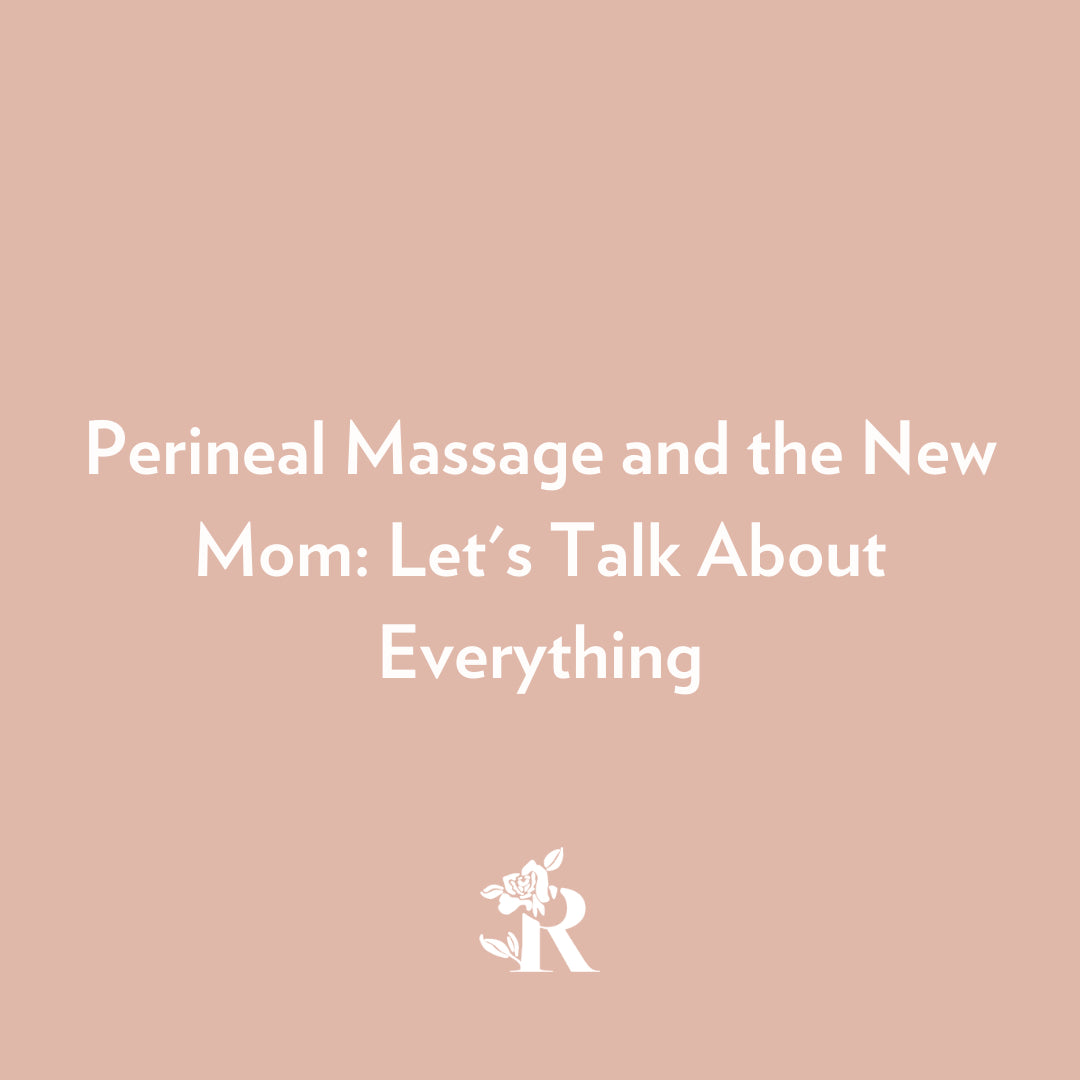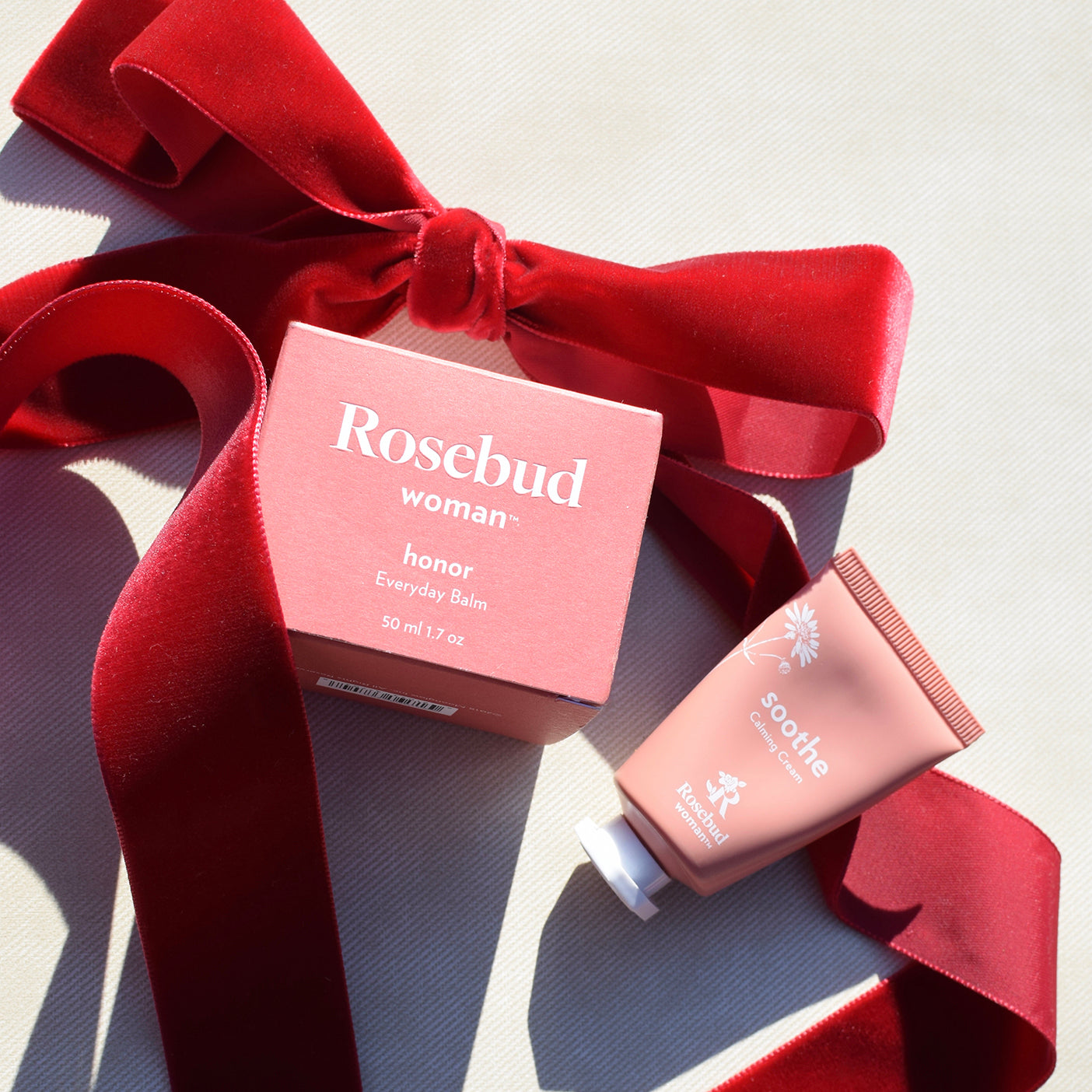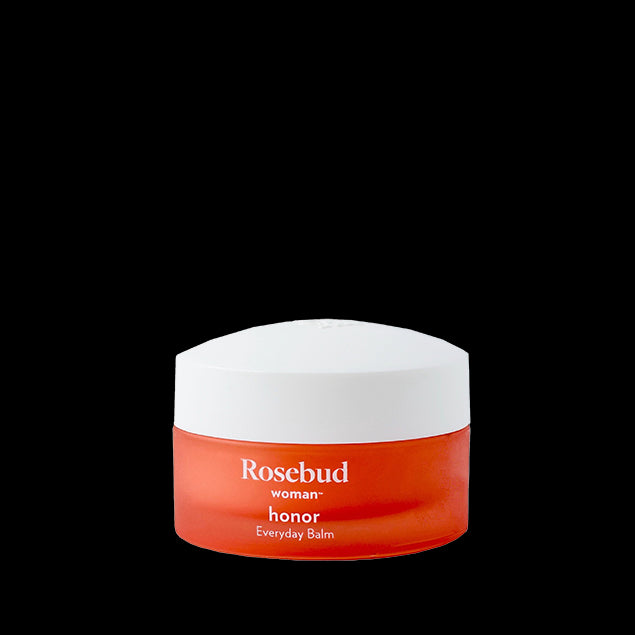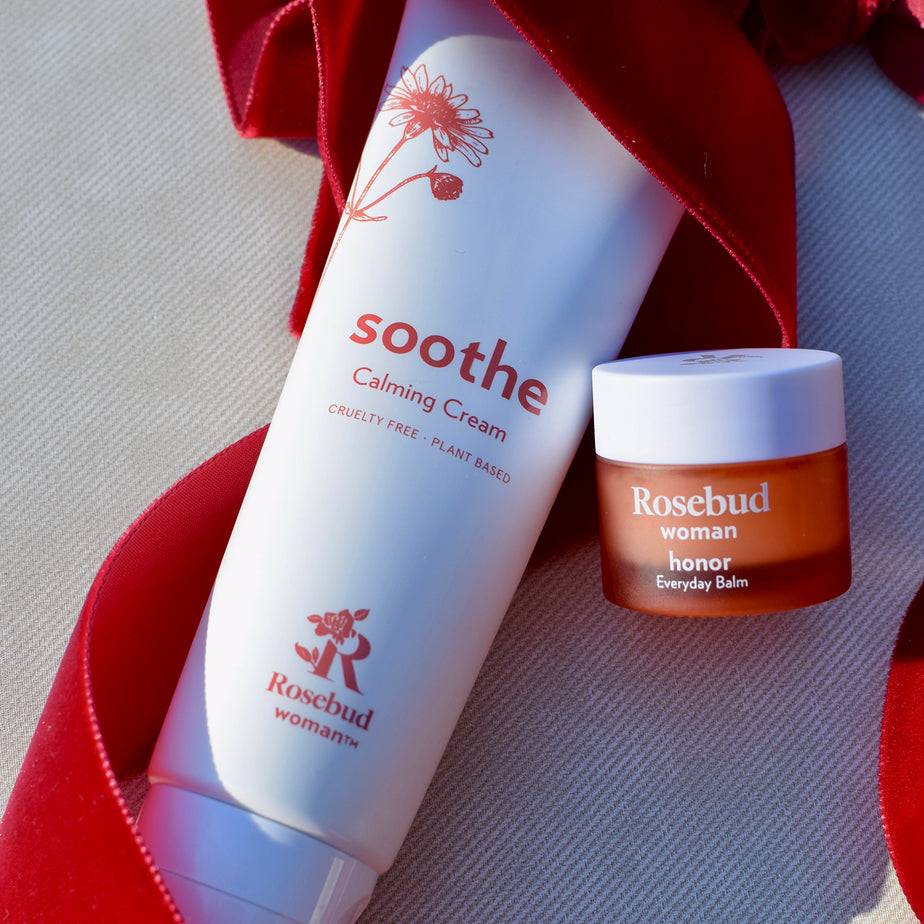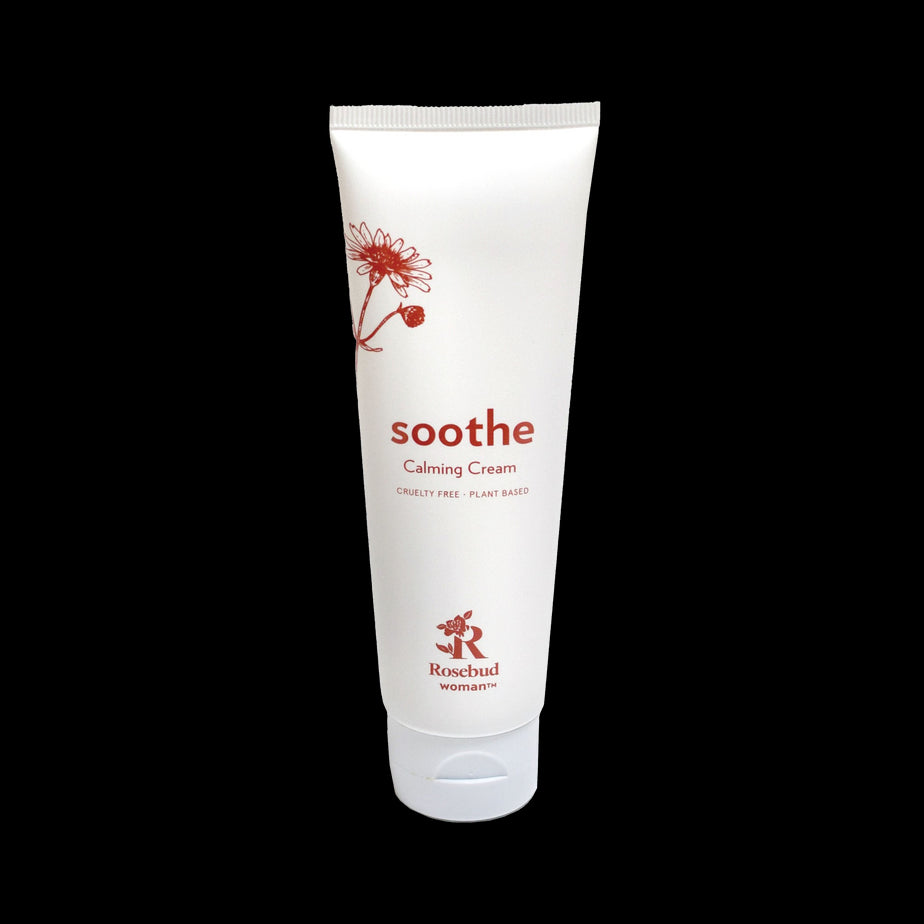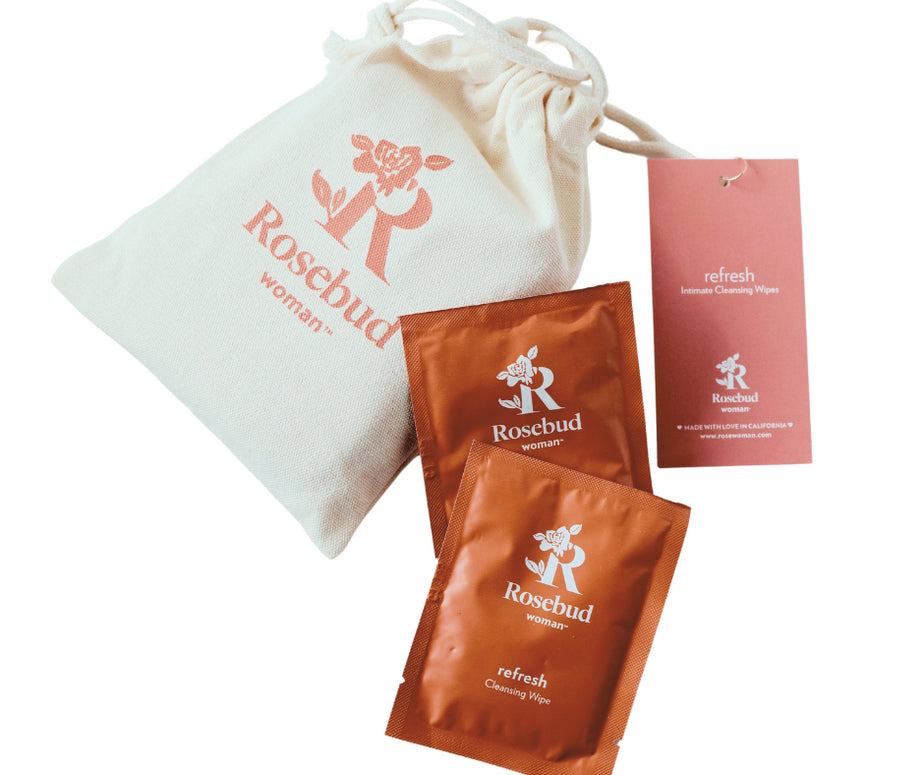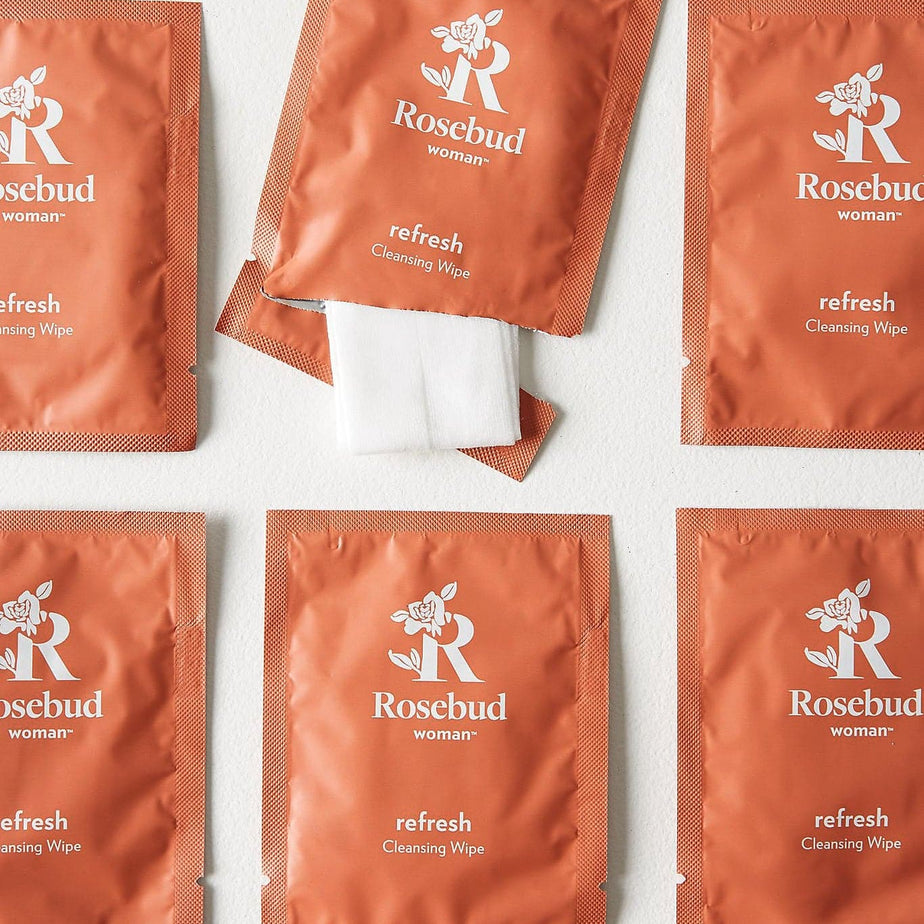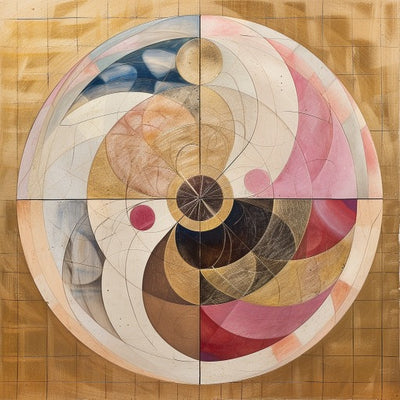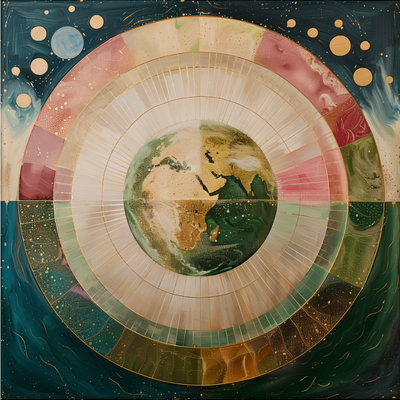Perineal Massage and the New Mom: Let's Talk About Everything
Perineal massage is vital for moms-to-be, and no one is talking about it.
If you’re expecting a baby, my guess is you haven’t discussed perineal massage with your birth assistant. Let's change that, and make care of the perineum another women’s health topic that enters into transparency in 2019.
About 2.7 million women in the United States will have a vaginal birth in 2019, and another 1.3 million will have a C-section (more than 30% of all births- an astonishing percentage!)
When I was having my own babies, I remember being shocked at the reality of the perineal tear. I had imagined the vaginal tissue would perform like a t-shirt with a small neck opening: It gets stuck on the head and has to stretch out to be pulled down but, once in place, it's poof! back to normal. But in reality my perineum tore, and was repaired with stitches. And it took a long time to heal because the area often stayed damp.
In Homo sapiens, it's our big brains that make this happen! As the large head of a full-term human fetus passes through the pelvis, the soft tissues are both stretched and compressed. The Agency for Healthcare Research and Quality (AHRQ) reports that first- and second-degree perineal tearing is the most common complicating condition for vaginal deliveries in the U.S.. More that 85% of women having a vaginal birth sustain some form of perineal trauma. About a third of woman have larger tears. These, and episiotomies (deliberate cutting), can make healing even more difficult.
What can be done? One thing that can help is perineal massage. Dr. Jessica Drummond, an integrative wellness physician who focuses on women’s health, says, “Perineal massage reduces the likelihood of perineal trauma (mainly episiotomies) and of ongoing perineal pain. As a pelvic floor physical therapist, I strongly recommend that women learn to perform perineal self-massage during the last few weeks of pregnancy, and then again postpartum once any tissue trauma heals and the skin is intact.” This is confirmed by a 2013 Cochrane Study, which suggests that massaging the perineum in the last few weeks of pregnancy can reduce the chances of having a tear or episiotomy during childbirth.
Most massage techniques involve having a woman (or her partner) insert one or two fingers into the entryway of the vagina and apply downward pressure or sweeping back and forth motions towards the perineum (towards the anus), for 7 to 10 minutes, a minimum of twice a week during the last 6 weeks of pregnancy. Avocado or coconut oil are sometimes used as lubricants, although they can impact the Ph balance of the vaginome. You can use our Honor Everyday Balm, which is formulated with luscious plant ingredients and has 10 minutes of play value.
empower yourself
Tearing is no fun, no matter how small the injury. If you do get a tear, treat it with cold compresses or sit on ice packs (damp towels put in the freezer work wonders), rinse with a peri bottle of warm water after using the bathroom and keep the area clean with a gentle non-irritating toner (try our Refresh Cleansing Spray, which contains witch hazel and aloe as well as tea tree and clary sage). After toileting, another tip is to use a hair dryer on cool to make sure you get as dry as possible with no mechanical friction. Another helpful healing tip during the healing process is to recline whenever possible, without underwear, legs apart, and help the tender area receive light and warmth and dryness. From 2 weeks postpartum, you can try our Soothe Calming Cream for reducing redness and swelling, and begin applying Honor balm to the healing tissues.
Bringing forth new life is an amazing, empowering process for which you are exquisitely designed. And it can come with discomfort. We can help with some of those discomforts in the skin of the greater vulvar region. No matter what your experience, be sure to talk to other moms and to your healthcare provider about ANYTHING that’s bothering you. Secrets can lead to suffering!
You are not unique in your discomfort and curiosities, and there are answers and tips available for anything you might be going through.
Congratulations, mama. May it be a beautiful and easy process for you.
XO

